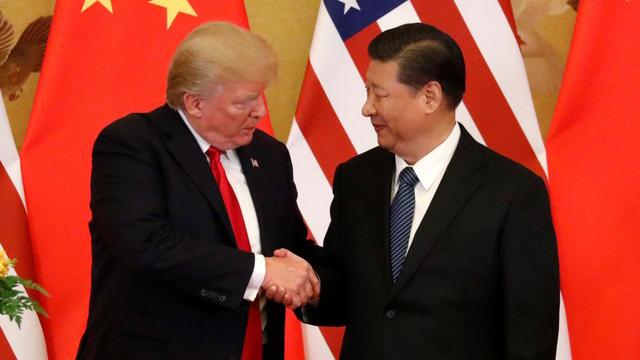Wall Street, K Street and Main Street overreacting on US-China trade war
This week’s headline of an ever-larger trade deficit with China will likely bring a series of reactions, if not overreactions, from the White House -- and global investors.
The world knows that President Trump made a “better” trade deal with China a centerpiece of his 2016 campaign. Fast forward to today, and Trump and his team are currently negotiating what is expected to be a wide-ranging trade deal with Beijing. Meanwhile, Wall Street, K Street and Main Street watch breathlessly - reacting, if not overreacting, to each development.
So the question is real: Do we have the patience to wait out this ginormous trade deal? There is a seemingly endless number of issues for the Trump administration to address with China regarding trade.
Long list
Broadly, most trade disputes involve market access. As it relates to China and the U.S., that includes market access for American autos, energy and agricultural products, financial services and China’s industrial policy initiative known as “China 2025.”
Beyond those issues lies the problem of China’s “appropriating” of technology either by outright stealing it or forcing its disclosure as a price of doing business in China. Even if an “understanding” could be reached on those many major issues, questions remain about what to do about Chinese telecom Huawei, Beijing’s currency policy and getting a verifiable deal on paper with respect to all of that.
CLICK HERE TO GET THE FOX BUSINESS APP
As with any government program, tax or regulation, government picks a winner and a loser. The bigger the issue, the greater the competition government provokes among interested parties. The more issues to be addressed, the more interested parties there are and, therefore, the more intense the competition.
No small poker game
The China trade deal not only has many issues, but the dollar value attached to each of those issues is enormous. This is no small poker game. As a result, the interested parties quite naturally want to influence the outcomes and want them to be resolved in their best interests.
The problem, of course, is that the deal quite literally resembles omnibus legislation in the U.S. Congress. The process of wanting to address all issues at once produces not only intense competition but also really involved and very long documents. Recall the Obama-era stimulus bill, or that Obamacare was over 2,500 pages and now has some 30,000 pages of accompanying regulations (and that is anything but model legislation!).
So when will all of the China issues be resolved? Probably never. Can some it be solved within in the 90-day negotiating window? Maybe. If not, are there more tariffs that Trump will impose and to which China will retaliate? Possibly.
I doubt anyone can know the answer to those questions with total assurance. In the meantime, the stock market might rise and fall, day to day, depending on the latest announcement regarding the negotiations or the number of days remaining.
What progress looks like
Assuming real progress is made, i.e. China makes acceptable concessions, and lower auto tariffs, rice purchases and the like are a start, the long-term economic benefits for the U.S. and the world could be massive.
Given the size, amount and complexity of the issues involved, not to mention the nature of the interested parties, a China trade deal won’t be easy to strike. It will take a lot of resolve. For now, given China’s economic troubles and sagging stock market, Trump appears to have a leg up in the negotiations.
Even so, this deal needs to be seen as a long-term investment, with short-term difficulties. So, rather than react to every up and down, America, the markets and world should not only be insistent but patient as well.
Thomas Del Beccaro is the author of The Divided Era, a historical work that argues ever larger government fosters ever greater societal division.




















